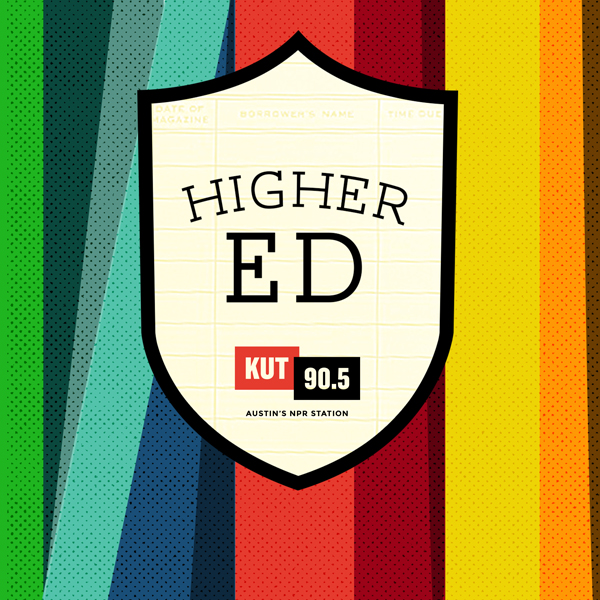One reason often cited by non-voters for their lack of participation goes something like this: “my vote doesn’t really count” or “how can my one vote make any difference?” Voter turnout among college-aged students is traditionally low in midterm election years. But this year is shaping up to be different. In this episode of KUT’s podcast “Higher Ed,” Southwestern University President Dr. Ed Burger and KUT’s Jennifer Stayton discuss how to sustain that interest even when national politics are not so charged.
Ed believes that getting voting-aged students to the polls is half the battle. The other half? Making sure they are informed voters.
“You just don’t want to have voters going in there and taking out a die and rolling it and then whatever it lands on that’s how you feel on the issue or who you decide to vote for,” says Ed. He hopes that voters will not make their voting decisions only influenced by “sound bites or 160 characters or generic Facebook posts where we don’t even know exactly where they’re actually emanating from.”
Ed believes that student can and should take the “best practices” of learning they have acquired in classrooms over the years and apply that to the act of voting.
“Articulate what are the issues that matter to you, that are important to you,” says Ed. “And then for each one of them, try to explain why. Is it an emotional response? Is it a logical response? Am I responding because I don’t like the other side, or because I like this side?”
Ed believes that student can making voting a practice – part of the way they live their lives – by getting interested and engaged early.
Listen to the full episode to hear more about using skills honed in the classroom to make decisions in the voting booth. The puzzler is taking a break for a little while to make way for some lighter riddles. These first two are pretty easy; see if you can get them right away.
This episode was recorded on Oct. 30, 2018.





